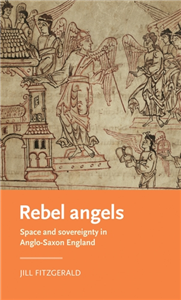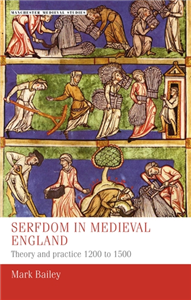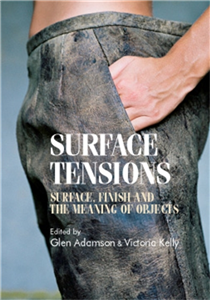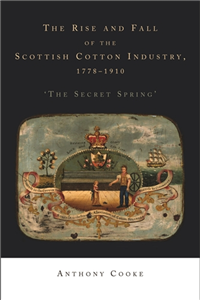Your Search Results
-
Promoted ContentLiterature & Literary StudiesJanuary 2013
Popular protest in late-medieval Europe
Italy, France and Flanders
by Samuel Kline Cohn
The documents in this stimulating volume span from 1245 to 1424 but focus on the 'contagion of rebellion' from 1355 to 1382 that followed in the wake of the plague. They comprise a diversity of sources and cover a variety of forms of popular protest in different social, political and economic settings. Their authors range across a wide political and intellectual horizon and include revolutionaries, the artistocracy, merchants and representatives from the church. They tell gripping and often gruesome stories of personal and collective violence, anguish, anger, terror, bravery, and foolishness. Of over 200 documents presented here, most have been translated into English for the first time, providing students and scholars with a new opportunity to compare social movements across Europe over two centuries, allowing a re-evaluation of pre-industrial revolts, the Black Death and its consequences for political culture and action. This book will be essential reading for those seeking to better understand popular attitudes and protest in medieval Europe.
-
Promoted ContentHumanities & Social SciencesApril 2020
Early modern war narratives and the Revolt in the Low Countries
by Raymond Fagel, Leonor Álvarez Francés, William G. Naphy, Beatriz Santiago Belmonte
-
 Trusted Partner
Humanities & Social SciencesAugust 2002
Trusted Partner
Humanities & Social SciencesAugust 2002The rise of the Nazis
by Conan Fischer, Mark Greengrass
How and why did the Nazis seize power in Germany? Nearly seventy years on, the question remains heated and important discoveries continue to challenge long standing assumptions. Beginmning with an overview of the historical context within which Nazism grew, looking at the foreign relations, politics and society of Weimar and in particular at the role of the elites in the rise of Nazism. The book questions the anatomy of Nazism itself: What lent Nazi ideology its coherence and credibility? What distinguished the Nazi's programme from their competitors' and how did they project it so effectively? How was Hitler able to put together and fund an organisation so quickly and effectively that it could launch a sustained assault on Weimar? Who supported the Nazis and what were their motives? Where, precisely, does Nazism belong in the history of Europe?. Since the publication of the first edition, important new works have appeared and this new scholarship has been incorporated into the text. ;
-
 Trusted Partner
Humanities & Social SciencesMay 2020
Trusted Partner
Humanities & Social SciencesMay 2020The Central Asian Revolt of 1916
by Alexander Morrison, Cloé Drieu, Aminat Chokobaeva
-
 Trusted Partner
Humanities & Social SciencesOctober 2024
Trusted Partner
Humanities & Social SciencesOctober 2024Egypt and the rise of fluid authoritarianism
Political ecology, power and the crisis of legitimacy
by Maria Gloria Polimeno
Egypt and the rise of fluid authoritarianism focuses on the struggle of the post-2013 political authorities for internal political legitimacy after the crisis following the 2013 coup d'état. It explores the microstructural and macro-systemic dynamics of leadership, power, protests and the authority-making process in political systems. These cannot simply be defined as structural, political, social and economic projections of the authoritarianism of the past, but rather as a rupture with that past. The book offers a complex, ground-breaking socio-political and economic analysis into how the forging of an internal political legitimacy claim has eventually modified the regime in Egypt along the authoritarian spectrum, turning into a fluid autocracy closer to a non-exclusivist personalist regime. This shift had implications that resonated both politically and economically.
-
 Trusted Partner
Humanities & Social SciencesApril 2023
Trusted Partner
Humanities & Social SciencesApril 2023The fall and rise of the English upper class
Houses, kinship and capital since 1945
by Daniel R. Smith
The fall and rise of the English upper class explores the role traditionalist worldviews, articulated by members of the historic upper-class, have played in British society in the shadow of her imperial and economic decline in the twentieth century. Situating these traditionalist visions alongside Britain's post-Brexit fantasies of global economic resurgence and a socio-cultural return to a green and pleasant land, Smith examines Britain's Establishment institutions, the estates of her landed gentry and aristocracy, through to an appetite for nostalgic products represented with pastoral or pre-modern symbolism. It is demonstrated that these institutions and pursuits play a central role in situating social, cultural and political belonging. Crucially these institutions and pursuits rely upon a form of membership which is grounded in a kinship idiom centred upon inheritance and descent: who inherits the houses of privilege, inherits England.
-
 Trusted Partner
Trusted Partner
-
 Trusted Partner
Humanities & Social SciencesJune 1999
Trusted Partner
Humanities & Social SciencesJune 1999The rise and fall of world orders
by Torbjorn Knutsen
Drawing in lessons from 400 years of Great-Power politics, this volume challenges both the "declinist" arguments and the overstretched hypothesis of Paul Kennedy to develop an alternative approach to the debate on the rise and fall of the Great Powers. The first half of the book compares the Spanish, Dutch and the First and Second British world orders. It identifies their common features in order to find the most salient causes for their rise as world powers, and the most probable reasons for their decline. The second half of the book addresses the American world order in the 20th century, from Pax Americana to the End of US Hegemony. The author sees the dissolution of the Soviet Union and the resurgence of the US as evidence of the role played by normative dimensions, commonly underestimated in International Relations analysis. Theoretically challenging, Knutsen's volume provides a fresh approach to debates in international relations aimed at both students and scholars.
-
 Trusted Partner
The ArtsSeptember 2024
Trusted Partner
The ArtsSeptember 2024The renewal of post-war Manchester
Planning, architecture and the state
by Richard Brook
A compelling account of the project to transform post-war Manchester, revealing the clash between utopian vision and compromised reality. Urban renewal in Britain was thrilling in its vision, yet partial and incomplete in its implementation. For the first time, this deep study of a renewal city reveals the complex networks of actors behind physical change and stagnation in post-war Britain. Using the nested scales of region, city and case-study sites, the book explores the relationships between Whitehall legislation, its interpretation by local government planning officers and the on-the-ground impact through urban architectural projects. Each chapter highlights the connections between policy goals, global narratives and the design and construction of cities. The Cold War, decolonialisation, rising consumerism and the oil crisis all feature in a richly illustrated account of architecture and planning in post-war Manchester.
-
 Trusted Partner
Literature & Literary StudiesFebruary 2023
Trusted Partner
Literature & Literary StudiesFebruary 2023Imagining the Irish child
Discourses of childhood in Irish Anglican writing of the seventeenth and eighteenth centuries
by Jarlath Killeen
This book examines the ways in which ideas about children, childhood and Ireland changed together in Irish Protestant writing of the seventeenth and eighteenth centuries. It focuses on different varieties of the child found in the work of a range of Irish Protestant writers, theologians, philosophers, educationalists, politicians and parents from the early seventeenth century up to the outbreak of the 1798 Rebellion. The book is structured around a detailed examination of six 'versions' of the child: the evil child, the vulnerable/innocent child, the political child, the believing child, the enlightened child, and the freakish child. It traces these versions across a wide range of genres (fiction, sermons, political pamphlets, letters, educational treatises, histories, catechisms and children's bibles), showing how concepts of childhood related to debates about Irish nationality, politics and history across these two centuries.
-
 Trusted Partner
Literature & Literary StudiesMay 2021
Trusted Partner
Literature & Literary StudiesMay 2021Rebel angels
Space and sovereignty in Anglo-Saxon England
by Jill Fitzgerald
Over six hundred years before John Milton's Paradise Lost, Anglo-Saxon authors told their own version of the fall of the angels. This book brings together various cultural moments, literary genres and relevant comparanda to recover that version, from the legal and social world to the world of popular spiritual ritual and belief. The story of the fall of the angels in Anglo-Saxon England is the story of a successfully transmitted exegetical teaching turned rich literary tradition. It can be traced through a range of genres - sermons, saints' lives, royal charters, riddles, devotional and biblical poetry - each one offering a distinct window into the ancient myth's place within the Anglo-Saxon literary and cultural imagination.
-
 Trusted Partner
Humanities & Social SciencesNovember 2025
Trusted Partner
Humanities & Social SciencesNovember 2025Serfdom in medieval England
Theory and practice 1200 to 1500
by Mark Bailey
Serfdom was a coercive relationship between a landowner and peasant, which was widespread across medieval and early modern Europe. Itfeatures prominently in major historical debates, such as the origins of capitalism and the divergent pathways of western and eastern Europe to modernity. Scholars have paid particular attention to English serfdom, which is usually portrayed as highly oppressive and a major cause of the Peasants' Revolt in 1381. This comprehensive survey draws on a vast scholarship and new research to show how, in reality, English serfdom was weak, casting new light on the nature of its society and economy when the Black Death struck in 1348-9. The pandemicnow assumesa central role in the rapid decline of serfdom, as illustrated in a case study of the estate of one of England's harshest landowners, St Albans abbey.
-
 Trusted Partner
The ArtsNovember 2013
Trusted Partner
The ArtsNovember 2013Surface tensions
Surface, finish and the meaning of objects
by Christopher Breward, Glenn Adamson, Victoria Kelley, Bill Sherman
Surfaces are often held to be of lesser consequence than 'deeper' or more 'substantive' aspects of artworks and objects. Yet it is also possible to conceive of the surface in more positive terms: as a site where complex forces meet. Surfaces can be theorized as membranes, protective shells, sensitive skins, even thicknesses in their own right. The surface is not so much a barrier to content as an opportunity for encounter: in new objects, the surface is the site of qualities of finish, texture, the site of tactile interaction, the last point of contact between object and maker, and the first point of contact between object and user. Surface tensions includes sixteen essays that explore this theoretically uncharted terrain. The subjects range widely: domestic maintenance; avant-garde fashion; the faking of antiques; postmodern architecture and design; contemporary film costume. Of particular emphasis within the volume are textiles, which are among the most complex and culturally rich materialisations of surface. As a whole, the book provides insights into the whole lifecycle of objects, not just their condition when new. ;
-
 Trusted Partner
Politics & governmentFebruary 2014
Trusted Partner
Politics & governmentFebruary 2014Fighting fascism: the British Left and the rise of fascism, 1919–39
by Keith Hodgson
In the years between the two world wars, fascism triumphed in Italy, Germany, Spain and elsewhere, coming to power after intense struggles with the labour movements of those countries. This book, available in paperback for the first time, analyses the way in which the British left responded to this new challenge. How did socialists and communists in Britain explain what fascism was? What did they do to oppose it, and how successful were they? In examining the theories and actions of the Labour Party, the TUC, the Communist Party and other, smaller left-wing groups, the book explains their different approaches, while at the same time highlighting the common thread that ran through all their interpretations of fascism. The author argues that the British left has been largely overlooked in the few specific studies of anti-fascism that exist, with the focus being disproportionately applied to its European counterparts. He also takes issue with recent developments in the study of fascism, and argues that the views of the left, often derided by modern historians, are still relevant today.
-
 Trusted Partner
Humanities & Social SciencesMarch 2017
Trusted Partner
Humanities & Social SciencesMarch 2017Air power and colonial control
by David Omissi
Air policing was used in many colonial possessions, but its most effective incidence occurred in the crescent of territory from north-eastern Africa, through South-West Arabia, to North West Frontier of India. This book talks about air policing and its role in offering a cheaper means of 'pacification' in the inter-war years. It illuminates the potentialities and limitations of the new aerial technology, and makes important contributions to the history of colonial resistance and its suppression. Air policing was employed in the campaign against Mohammed bin Abdulla Hassan and his Dervish following in Somaliland in early 1920. The book discusses the relationships between air control and the survival of Royal Air Force in Iraq and between air power and indirect imperialism in the Hashemite kingdoms. It discusses Hugh Trenchard's plans to substitute air for naval or coastal forces, and assesses the extent to which barriers of climate and geography continued to limit the exercise of air power. Indigenous responses include being terrified at the mere sight of aircraft to the successful adaptation to air power, which was hardly foreseen by either the opponents or the supporters of air policing. The book examines the ethical debates which were a continuous undercurrent to the stream of argument about repressive air power methods from a political and operational perspective. It compares air policing as practised by other European powers by highlighting the Rif war in Morocco, the Druze revolt in Syria, and Italy's war of reconquest in Libya.
-
 Trusted Partner
Humanities & Social SciencesMay 2006
Trusted Partner
Humanities & Social SciencesMay 2006The debate on the rise of the British Empire
by Anthony Webster, Roger Richardson, Rebecca Mortimer
-
 Trusted Partner
Humanities & Social SciencesMay 2006
Trusted Partner
Humanities & Social SciencesMay 2006The debate on the rise of the British Empire
by Anthony Webster, Roger Richardson
-
 Trusted Partner
Business, Economics & LawMarch 2010
Trusted Partner
Business, Economics & LawMarch 2010The rise and fall of the Scottish cotton industry, 1778–1914
'The secret spring'
by Anthony Cooke
This is the first full-length history of the Scottish cotton industry, from its beginnings in the late eighteenth century to its premature decline in the years leading up to the First World War. The book examines the industry chronologically and through themes such as precursors, technology, capital and employers, markets, labour and work, placed within their broader economic and scoial contexts. Its account of the cotton industry is set within important historiographical debates such as proto-industrialisation, the speed of industrial change, the diffusion of technology, the labour process, paternalism, workplace control, entrepreneurship and theories of industrial decline. Cotton was Scotland's premier industry during the Industrial Revolution and this book will be wlecomed by specialists, students and interested readers alike. ;
-
 Trusted Partner
The ArtsJanuary 2019
Trusted Partner
The ArtsJanuary 2019The secret life of romantic comedy
by Celestino Deleyto
The secret life of romantic comedy offers a new approach to one of the most popular and resilient genres in the history of Hollywood. Steering away from the rigidity and ideological determinism of traditional accounts of the genre, this book advocates a more flexible theory, which allows the student to explore the presence of the genre in unexpected places, extending the concept to encompass films that are not usually considered romantic comedies. Combining theory with detailed analyses of a selection of films, including To Be or Not to Be (1942), Rear Window (1954), Kiss Me Stupid (1964), Crimes and Misdemeanors (1989) and Before Sunset (2004), the book aims to provide a practical framework for the exploration of a key area of contemporary experience - intimate matters - through one of its most powerful filmic representations: the genre of romantic comedy. Original and entertaining, The secret life of romantic comedy is perfect for students and academics of film and film genre.
-
 Trusted Partner
Trusted Partner





















